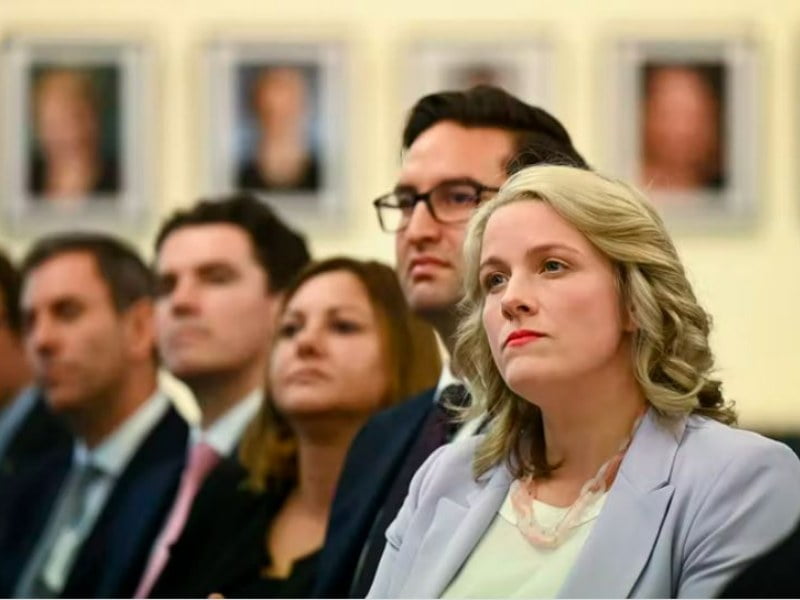The federal government will need to spend “big dollars” fixing Australia’s visa processing systems, Home Affairs minister Clare O’Neil has acknowledged while ruling out any new funding in the forthcoming budget.
Ahead of the government lifting the skilled migration cap from 160,000 to 195,000 places during the Jobs and Skills Summit on Friday, Ms O’Neil said short and long-term issues with visa processing were holding skilled migration back.
She said work was already underway to address the short-term backlog in processing, with 180 additional staff brought in to assess applications since the arrival of the new government in May.

Immigration minister Andrew Giles later on Wednesday announced an additional $36.1 million to increase the number of visa processing staff by 500 for nine months.
But Ms O’Neil pointed to the need to solve systemic issues with the “not quite paper-based, but… virtually paper-based” immigration system through much-needed investment in the underlying IT systems.
“There’s a lot of human involvement in visa processing which is unnecessary, and that’s because we have not invested in the system properly,” she said ahead of the Jobs and Skills Summit in Canberra on Friday.
“So… we’ve got to have a big strategic think about this program [at the summit], but we’ve also got to think about how this is functioning within government.
“Having a visa processing system that is intractably slow is not good enough for a modern country like Australia, and I do think we need to do something about that.”
Ms O’Neil said that while government would eventually “need to make an investment in the IT system”, the upcoming Federal Budget in October would not contain “a big IT investment”.
“I’m not making an announcement about that because it’ll be big dollar and it’s probably some way into the future,” she stressed.
The future of Australia’s visa processing systems has been under a cloud since the former Coalition government abandoned its controversial billion-dollar plan to outsource the systems to an external provider in March 2020.
Shortly thereafter, the Department of Home Affairs went to market for a private provider to deliver a “permissions capability” platform, intended to initially replace the paper-based incoming passenger card and handle simple visa processing.
The department settled on Accenture as the provider in September and formally announced a several contracts with the Irish-domiciled consulting multinational worth almost $60 million in October 2021.
In response to answers to questions on notice from senate estimates earlier this year, Home Affairs later revealed that none of the $60 million paid to Accenture was for the development of a simple visa.
“A simple visa was included in the request for tender documents, however, future permissions capability use cases such as visa (sic) are yet to be considered by government,” the department said in May.
“Accordingly, no contract for a simple visa (anticipated fourth work order under the deed of standing offer for a permission capability) has been entered.”
The first test of the new permissions capability project was the Digital Passenger Declaration (DPD), a digital passenger card that allowed internationally travellers to declare COVID-19 vaccination status and travel history.
Home Affairs launched the DPD in February, having begun trialling the technology in December, but the lack of integration meant travellers still had to complete the paper-based incoming passenger card.
But the government shelved the DPD in July, just months after it was released, after a flood of scathing reviews, with O’Neil conceding that the DPD was not fit for purpose and would need “a lot more work to make it user friendly”.
The Australian National Audit Office is currently examining the procurement process used to source a provider for the DPD and whether value for money was achieved. The audit office is expected to table its report in February 2023.
Do you know more? Contact James Riley via Email.

